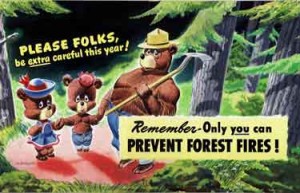Friday, August 30th, 2013  I got a phone call this morning, inviting me on an adventure. I got a phone call this morning, inviting me on an adventure.
(It was a fairly mundane adventure–more of an errand, really–but an adventure for me nonetheless.)
I summoned up my courage, belted on my longsword, picked up my rucksack and walked out the door.
(Okay, I decided whether or not I really wanted to do this, grabbed some extra cash– and my purse, and headed to the car.)
Despite perils (speed traps and dump trucks, a deer in the road, a box I tripped over…) I returned triumphant…
…and a good day was had by all.
I know this is all kind of vague, deliberately so, because I wanted to use it as an example.
The phone call this morning reminded me of Joseph Campbell’s “Hero’s Journey,” a formula for writing stories, in which the first step is “the call to action.” I wanted to make clear from the start that Campbell’s formula is an excellent method for telling stories, despite the genre or method.
Campbell postulated that stories from all regions of the world, from all time periods, share common themes and patterns.
The first step in many stories is that the hero gets a call to action. Mine today was literally a phone call, but this call could come in a myriad of forms:
– a near-deathly accident could cause a person to change his life
– a stint in jail could cause a woman to reevaluate her priorities
– a college opportunity causes a student to change majors
– physician discovers something that sends him down a path of research
Basically, a call to action is an event, an opportunity, a discovery– a change from the norm–that brings a person to a decision point.
This “something” usually happens at the very beginning of a novel or short story.
Here’s Your Prompt:
- Write the opening of a new novel or short story: write your hero’s “call to action.” Develop your character enough for us to believe this “call” (and subsequent change in his life) is believable.
- The second part of Campbell’s formula is the “refusal of the call.” Many heros are faced with situations they can’t tolerate. Write the call to action, and follow it up with a scene in which your hero refuses to heed it.
- If your journal, write about a time you received the call. What happened?
Good luck!
Thursday, August 22nd, 2013 
Today is Be An Angel Day, as declared by Reverend Jayne Howard Feldman. Feldman, who has written several books about angels, established Be An Angel Day in 1993 to encourage people to perform random acts of kindness and to help those in need.
Feldman’s theory is that my guardian angel led me to her page — looking for peace in my life — and ultimately, to writing to you about it. (Though her web site is a bit of a mixed bag – it could as likely be the fairies who led me there, or a bit of numerology.) Regardless, there were forces at work.
(Between you and me, I was searching for the founder of Be An Angel Day and that’s how I found Feldman’s page.)
Here’s Your Prompt:
- Create a scene in which your character is led to a revelation due to the intervention of a guardian spirit. (Beware this revelation coming at the end of a story. Your character must still work hard to achieve his goals or it will be unsatisfying to the reader. Avoid: Deus ex machina.)
- Flip the guardian notion on its head: perhaps your character has an “assailing” spirit rather than a guardian one. What kinds of danger does it lead your character into? Physical danger? Temptation? One of the ‘seven deadly sins’ – anger, greed, sloth, pride,lust, envy, and gluttony?
- Think of a time when someone was your “guardian angel.” Write about how that person helped you. Or, write about a time when literally, your guardian angel (or spirit) was at work.
- Write a poem about helpful spirits. A spirit could be an angel, a ghost, a fairy, etc. Or, flip it and write about unhelpful spirits.
- Write about the angel in Hartley Coleridge’s Early Death: “Love was her guardian Angel here, But Love to Death resign’d her; Tho’ Love was kind, why should we fear, But holy Death is
kinder?
Good Luck!
 |
Have you read The Dragon’s Clause?
For hundreds of years, San Marino paid tribute to the dragon living beneath their mountain city. But no one alive remembers him. Despite the existence of a contract, the town refuses to pay this year. When the residents renege on the deal, they must face the wrath of the beast.
$2.99 at Amazon.com | $2.99 at Barnes and Noble |
Wednesday, August 21st, 2013  I finally got a chance to go fishing with my Dad this summer, and what do I catch? An eel. I finally got a chance to go fishing with my Dad this summer, and what do I catch? An eel.
This one was about two feet long, and as big around as a homemade kielbasa. It pulled like hell, bringing it in. I thought it was a much larger fish, but my dad could tell right away what it was, dancing across the water as I reeled it in.
I’ve never caught an eel before, and I must say, I was vastly disappointed.
Except: now I’ve got more fodder for stories. This thing will come up somewhere, I’m certain.
I never knew eels were so slimy. Yeah, I knew there was a slime factor involved, but not *this* slimy. I swear.
While taking it off the hook it wrapped several times around my arm. I let the slime dry there, thinking I could brush it off, or wash it off easier once it dried.
Not so: there was no brushing it off, or even peeling it, like a facial mask.
I had to resort to washing. And when the dried slime got wet? It reconstituted. Ew! I had to scrape it off. Soap did not cut it.
Definitely story fodder there: Perhaps human-sized zombie eels able to spit venomous slime… Maybe land-walking eels with slime that burns through everything, who come to take over the world (or at least summer camp. A good horror story always starts at summer camp, eh?)
I’ve got to think about this…
Friday, August 16th, 2013  Sometimes I find themed writing prompts to be less than inspiring. When that fails, I find a random word generator and offer myself the challenge of using all the words in a story or poem. Sometimes I find themed writing prompts to be less than inspiring. When that fails, I find a random word generator and offer myself the challenge of using all the words in a story or poem.
Three words seems just about right. I’ve tried more, but the resulting prose can feel contrived — unless you can find a relationship among the many. Sometimes you can. Most often, you can’t.
Today’s three random words come from the Creativity Games.net random word generator. I like this one because you can choose between 1 and 8 random words be generated.
(And I love the three words! My mind went right to the macabre! How about you?)
Here’s Your Prompt:
Use the following three randomly-generated words in some form of written creative expression:
coffin bench arch
Creative expression can include:
- a short story
- a poem
- a vignette
- an essay
- a journal entry: derive your inspiration from real life experiences. You may need to focus on one word of the three.
Good Luck!
Friday, August 9th, 2013  Happy Birthday, Smokey the Bear! Happy Birthday, Smokey the Bear!
I have a fondness for Smokey, and it started long before I started work at the USDA. There’s just something about his forlorn seriousness, captured in so many US Government posters, that tugs a little at my heart strings.
Smokey the Bear gets his name from “Smokey Joe” Martin, the assistant chief of the New York City Fire Department from 1919-1930. He was first painted by Albert Staehle in 1944, then by others, most notably Rudolph Wendelin who painted images of Smokey from 1949 until his retirement in 1973.
The National Agricultural Library in Beltsville, MD has an on-going exhibit of Smokey Posters, and their Special Collections Unit has so much more available for perusal in the stacks (you’ll need to make an appointment). You can read about the Library’s Smokey the Bear Collection here. (Scroll down for some great pictures!)
Smokey’s message remains the same after all these years: Only You Can Prevent Forest Fires – though there were some additional messages along the way, like during war time — “Careless matches aid the AXIS” — mostly faded now into history.
The Library’s Smokey the Bear Collection consists of 115 linear feet of stuff, including 20 map case drawers, 53 boxes, and over 100 films.
I’ve used information in the the container list for today’s prompts. It’s not a long stretch to see how forest fires might have some far-reaching consequences. A little carelessness can go a long way.
Here’s Your Prompt:
The following slogans come from Smokey the Bear posters through the years. Use one or more of the phrases as a leaping off point for a scene, poem or short story.
Feel free to deviate. For example, substitute some other crisis or disaster for fire. Or, substitute another place in lieu of a forest.
- Careless matches aid the AXIS.
- Fire means less schools, roads, tourists, game timber and higher taxes.
- Another enemy to conquer. Forest fires 9 out of 10 times can be prevented.
- A forest’s future is in your hands.
- Please be careful with the future.
- Think.
- Every tree is a family tree. So, please help Smokey.
- Forest Fires catch fish, too.
- In the time it took to grow this tree, we grew a country.
Good Luck!
Friday, August 2nd, 2013 August is National Eye Exam Month.
Coincidentally, I just had my eyes examined. This year, the doctor took photos of my eyes to check for abnormalities. It was a completely painless – and quick – procedure, but anxious-making if only because it’s considered a “medical” test and had to be scheduled outside of the regular eye exam.
And after the exam, which meant the doctor saw something she didn’t like.
What she saw, if unchecked, could result in total blindness for me. (I’m safe, by the way. But it’s still something the doctor wants to watch.)
But the process reminded me of a question someone asked me once: would you rather go blind or go deaf?
I apologize if I’ve offended any of my deaf or blind friends with this question, but I hope you’re agree that it makes for an interesting discussion–if just in the abstract. The point is: what type of major loss–perhaps something you take totally for granted–could you live without the best?
It’s still an awkward question, I know.
My answer: I’d rather go deaf. Tough choice for me, really, but those of you who’ve ever visited or driven in a car with me know: I’ve got music blasting all the time. It’s a major part of my life. Music is pure emotion without any words.
(Song writers, I promise you, are geniuses.)
I think living without music would kill a little part of me. If I couldn’t be a writer, I’d definitely be a musician. But still, I’d rather go silent then dark.
I think I could remember the music better than I could remember sight. Memories fade–images fade–but I’m not certain about tunes. Then again, maybe it’s me.
Try this experiment: picture in your mind the face of a relative long gone. Describe their features, exactly how you remember. Now find a photo and compare. How accurate were you?
Next: try to sing an old nursery rhyme you learned as a child. Can you do it? Maybe Twinkle-Twinkle Little Star or the ABC song… Try one you can’t remember the words to. Can you still hum the tune?
Here’s Your Prompt:
- Write: would you rather be deaf or blind?
- Sit for one minute with your eyes closed in a busy or semi-busi location. After a minute or so, write down the sensations you had, the things you noticed with your other senses: touch, taste, sound, etc. Now try the same experiment with your eyes open. What’s the difference?
- Find someone who won’t mind you invading their personal space. Now, look into his or her eyes. What do you see there? (Do you see something you haven’t seen before?) Is this the first time you’ve been this close? Eyes are supposedly the ‘windows of the soul.’ Write about your friend’s soul.
- Write about a memory “through the eyes of a child.” That is, exactly how you remember feeling as a kid about it. Now try writing the same scene as “through the eyes of a stranger.” How do the perceptions differ?
Good luck!
Friday, July 26th, 2013  “Jamestown Jane” – Reconstructed face of a 14-year-old girl thought to have been cannibalized in 1609 by the Jamestown Colony. Earlier this year, archeologists found evidence of cannibalism at Jamestown, Virginia in 1609.
There are at least six hand-written accounts by colonists mentioning the fact, including this one by George Percy, the governor of Jamestown at the time:
“…Notheinge was Spared to mainteyne Lyfe and to doe those things which seame incredible, as to digge upp deade corpes outt of graves and to eate them. And some have Licked upp the Bloode which hathe fallen from their weake fellowes.”
But no physical evidence had ever been uncovered, until now. The bones of a 14-year-old girl were dug up in the fort cellar. They contained cleaver and knife marks, according to archeologists: all signs of cannibalism.
Colonists had called the dreaded winter of 1609, “The Starving Time.”
Though they’d been an established colony since 1607, they were still learning how to become self sufficient. A drought hindered their summer growing season, and when Captain John Smith returned to England for the treatment of an injury, relations broke down between the colony and the local Indians, who had, until then, been friendly.
When the winter came, they did what they must to survive. Even so, only 60 of 300 remained in the spring. Could it be that only the people willing to eat their friend’s flesh survived?
Here’s Your Prompt:
- Make a list of things that people do in desperate times — murder, cannibalism, betrayal, robbery — and write a story or poem about it.
- Write about a time when * you * were desperate. What did you do?
- What is quiet desperation? Write about it.
- Write about a desperate phone call.
- Write about a time you were desperate to impress someone.
- William Penn wrote in The Fruits of Solitude, “As a Desperate Game needs an able Gamester…” What did he mean? Write about a “desperate game.”
Friday, July 19th, 2013  We’re having a heat wave, which is no surprise, because it’s July on the East Coast. We’re having a heat wave, which is no surprise, because it’s July on the East Coast.
Unfortunately, the AC decided to give out today. I’m waiting for a call back from some AC Repair companies to let me know if they can make it out anytime soon.
(This rots, because I had plans for today. Big Plans!)
Instead, we’re sitting here stewing – literally, not figuratively, because at least the basement is a cool 73 degrees. And I have iced-tea brewing – my favorite.
Hope you’re keeping cool!
Here’s Your Prompt:
- Temperature spikes usually make people uncomfortable. Write about heat. Irritable people, tensions escalating, tempers flaring. Write about:
- Tempers flaring out of control in the office, or
- Tempers flaring out of control on public transportation: a bus, in a taxi, or on an airplane.
- Write about a married couple — or a young couple living together — trapped in a sweltering apartment and no funds to get to the movies or somewhere where they might spend some time getting cool.
- Heat also brings up the possibility of passion. Write about sex on a tropical island, or in a candle lit room. Write about hot, passionate kisses. Write about forbidden sex or your deep-in-your-heart sexual fantasy. Write long, torrid sex scenes designed to make your reader squirm, where the climax is, achingly, pages and pages later.
Good luck!
Friday, July 12th, 2013  I’m getting ready for vacation. I’m getting ready for vacation.
Besides my computer, the one thing I always take with me is my camera. So, I’m charging batteries, cleaning accessories, and cleaning off data cards (Hello, Christmas photos! That’s where you are!)
I take a lot of snapshots no matter where I go.
And I’m terrible about cleaning off the data cards…which is why I have so many of them. I tend to keep taking pictures until they’re full, and then rush in a mad scramble to get them cleaned off before the next event. So, I buy extras. And now they’re all full, too.
I know some people who clean them off right away, tossing the blurries and labeling the people. I’m rarely that organized. (I’ve got better things to do! Don’t you?)
By the time I get to the photos, I’m often surprised by what I see on the camera. Not just the event, but the expressions, the feelings, the emotion.
Some good story stuff there.
Here’s Your Prompt:
- Open a photo album to a random snapshot. Write the story of what’s happening. If you journal, perfect. Write this moment. If you write fiction, make up a story about what you see. Bonus points if you use someone else’s photo album. (If you don’t have a photo album, use Google Images and search for “people.” Use the first photo you see.)
- Write about an autographed photo.
- Write about someone — or something –missing from a snapshot.
- Here are some story starters or journal ideas:
- In this snapshot, I am…
- It was picture perfect.
- He refused to hold still.
- “We agreed, no photos.”
- Capture this image.
- It shook the camera, and this is what we got.
- Write about light and dark, shadow and substance, frame and focus.
- Ralph Waldo Emerson said, “Nature paints the best part of a picture, carves the best part of the statue, builds the best part of the house…” Do you agree or disagree? Why or why not?
- Write about something written on the back of a photo.
Good luck!
~~~~~~~~~~~~~~~
Photo of Liberty Cap Bell Yellowstone National Park © Raymond Kasprzak | Dreamstime Stock Photos
Friday, July 5th, 2013 I was talking to a friend earlier this week about secrets. Mostly, it was about family secrets: things that have been buried for years that suddenly come to light.
Oh, my! What a mess. The drama!
Sorry, I can’t spill the beans here.
But it got me thinking nonetheless.
Why are secrets kept? Why are things shared? What prompts people to share secrets after years, decades, of being mum?
Once, when I was visiting the cemetery with my Mom, she walked up to the edge of my great-great uncle’s grave and put her shoe on the corner. “His daughter’s buried right here,” my Mom said.
Revelation! There’s no tombstone but my uncle’s on the grave, and no indication that any other body might be buried there. I never even knew my G-G-uncle had a daughter! Why would she be buried in such mean conditions?
These are the things great stories are made of!
Here’s Your Prompt:
- Write about what makes a thing secret. Then write what makes a thing shared. Experiment with writing each in two different ways: veiled language for secrets, open and direct language for shared things. Then, try it again and switch language.
- Write a story (or a poem) about a family revelation. Write it first by exposing the secret at the beginning. Write it again, leading up to the revelation and then a tell-all at the end. Which is more powerful?
- Write about a character who shares too much. Or, write about a character who doesn’t share enough.
- Lord Byron says, “No words suffice the secret soul to show, for truth denies all eloquence to woe.” True or False? Why? ~ From, The Corsair, Canto iii. Stanza 22. George Gordon Noel Byron, Lord Byron.
- Story Starter: I promised I wouldn’t tell anyone, but I know I can trust you.
- If you journal, write about a family secret. You don’t need to reveal the secret if you don’t want to, just talk about what transpired between family members. Who knows and who doesn’t know? How has it changed relationships? Is keeping secrets worth it? How has the secret changed lives?
- “What magic shall solve us the secret of beauty that’s born for an hour?” said Madison Julius Cawein. Write what the secret of beauty is.
Good Luck!
 |
Have you read The Dragon’s Clause?
For hundreds of years, San Marino paid tribute to the dragon living beneath their mountain city. But no one alive remembers him. Despite the existence of a contract, the town refuses to pay this year. When the residents renege on the deal, they must face the wrath of the beast.
Amazon.com | Barnes and Noble | Smashwords
|
|
Writers - Maryland Writer's Assn.
|
 I got a phone call this morning, inviting me on an adventure.
I got a phone call this morning, inviting me on an adventure. 


 Sometimes I find themed writing prompts to be less than inspiring. When that fails, I find a random word generator and offer myself the challenge of using all the words in a story or poem.
Sometimes I find themed writing prompts to be less than inspiring. When that fails, I find a random word generator and offer myself the challenge of using all the words in a story or poem. Happy Birthday, Smokey the Bear!
Happy Birthday, Smokey the Bear!



 I’m getting ready for vacation.
I’m getting ready for vacation.